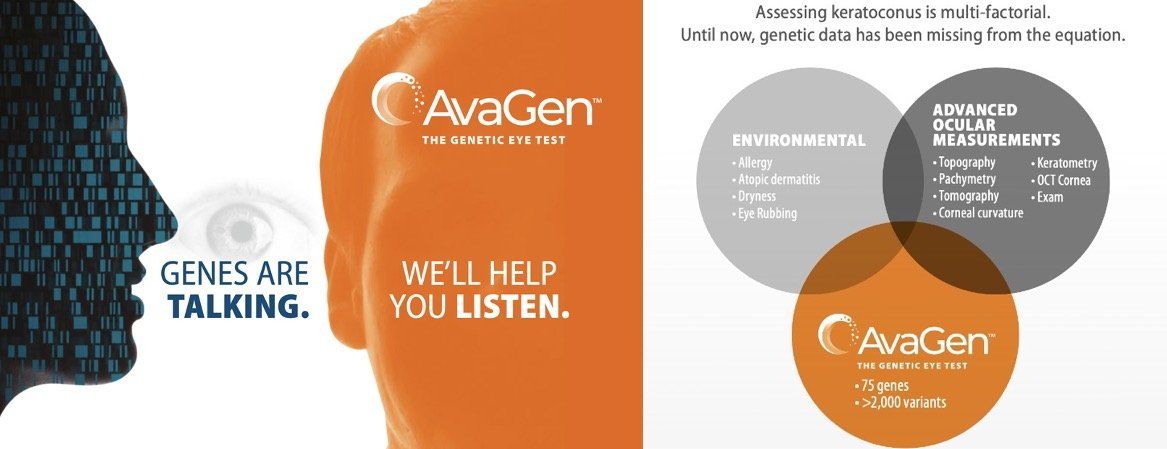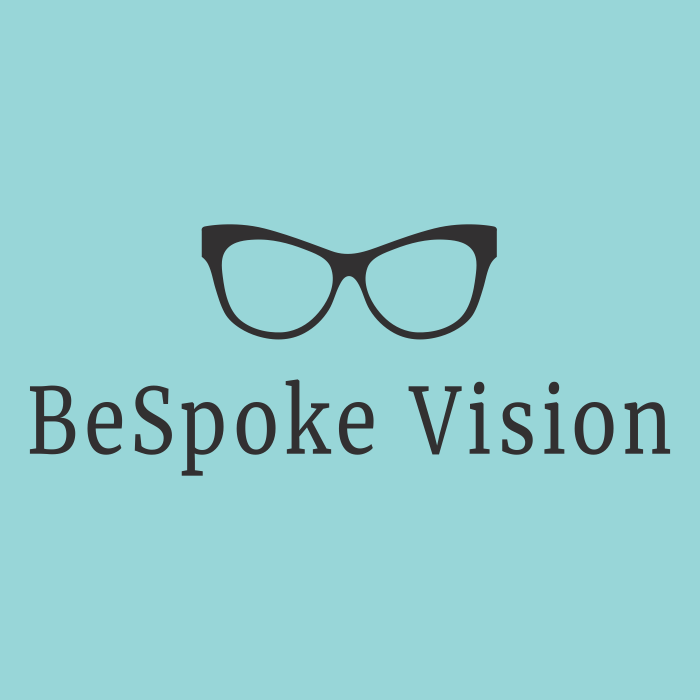Should I Have A Genetic Eye Test?

Should I have a genetic eye test?
If you have keratoconus, a corneal dystrophy, or a family history of keratoconus or corneal dystrophy early testing is important. Let’s start with the basics about these two eye conditions and then find out why.
Keratoconus
Keratoconus is a genetic eye condition that occurs when the cornea—the clear, rounded front part of the eye—thins and bulges into a cone-like shape.
It can cause symptoms such as blurred vision, seeing glare and halos around light, eye pain, and sensitivity to light. If left untreated, the cornea will continue to change shape, and vision will progressively worsen over time. In advanced cases, keratoconus may result in a corneal transplant.
Corneal Dystrophy
There are many types of corneal dystrophies, but one group of sight-threatening corneal dystrophies are called TGFBI. TGFBI corneal dystrophies are a group of rare but harmful genetic eye disorders that run in families and cause changes in the cornea. The corneal
changes range from swelling to a buildup of abnormal material.
Common symptoms of corneal dystrophy include vision loss, eye pain, dry eye, sensitivity to light and glare, or the feeling that something is in your eye.
Why Early Testing is Important
In the past, keratoconus and corneal dystrophy could only be diagnosed by a doctor physically examining the shape and appearance of the cornea. This meant the disease may be undiagnosed, and continue to progressively worsen and permanently affect vision over time. That’s why the early and accurate diagnosis with AvaGen™genetic eye test makes it such a key step for maintaining your eye health today and int the future.
With AvaGen™, you will have the peace of mind of knowing you are doing the utmost to protect your vision, and the confidence of being able to take immediate action if needed.
Are my family members at risk?
The groundbreaking AvaGen™genetic eye test leverages powerful genetic information to provide your eye doctor with an early and accurate
understanding of keratoconus risk, and the presence of TGFBI gene related corneal dystrophies. By delivering these insights in both asymptomatic and
suspected patients, AvaGen™enables new opportunities for proactive sight-saving interventions and confident surgical decisions.
Now with AvaGen™ genetic testing you and your eye doctor can better assess the risk you or your family has for keratoconus and corneal dystrophy.

AvaGen™ is:
PERSONALIZED
A fast and easy cheek swab sample is used to measure and assess keratoconus risk, and report the presence of TGFBI corneal dystrophies.
PRECISE
Objective, quantitative genetic data reliably guides confident management and treatment decisions.
PROACTIVE
Enables early, proactive assessment and actions not possible using reactive historical methods used after onset of symptoms. Assessing keratoconus is multi-factorial. Until now, genetic data has been missing from helping us clearly make a diagnosis.
COMPLETELY CONFIDENTIAL:
Your genetic information is yours and yours alone. Your information will not be shared to anyone outside of your doctor without your permission.
AvaGen™ ANALYZES:
- 75 keratoconus-related genes and over 2,000 variants to inform early and accurate management decisions.
- TGFBI gene and 70 TGFBI variants related to corneal dystrophies to provide a definitive diagnosis of subtypes of corneal dystrophies:
-Epithelial Basement Membrane
- Lattice Type IIIA
-Granular Type 1
-Granular Type 2 (Avellino)
- Schnyder
- Lattice Type 1
- Theil-Behnke
-Reis-Bucklers
Questions to ask your eye doctor at BeSpoke Vision:
What causes keratoconus?
How will keratoconus affect my vision?
Am I at risk for keratoconus?
Is Corneal Cross-linking right for me?
What causes corneal dystrophies?
How can a corneal dystrophy affect my vision?
Am I at risk for corneal dystrophy?
Dr. McGee and her team at BeSpoke Vision have made this powerful test available in Edmond, OK. The first to do so in Oklahoma. Reach out to learn more about how they can help!


